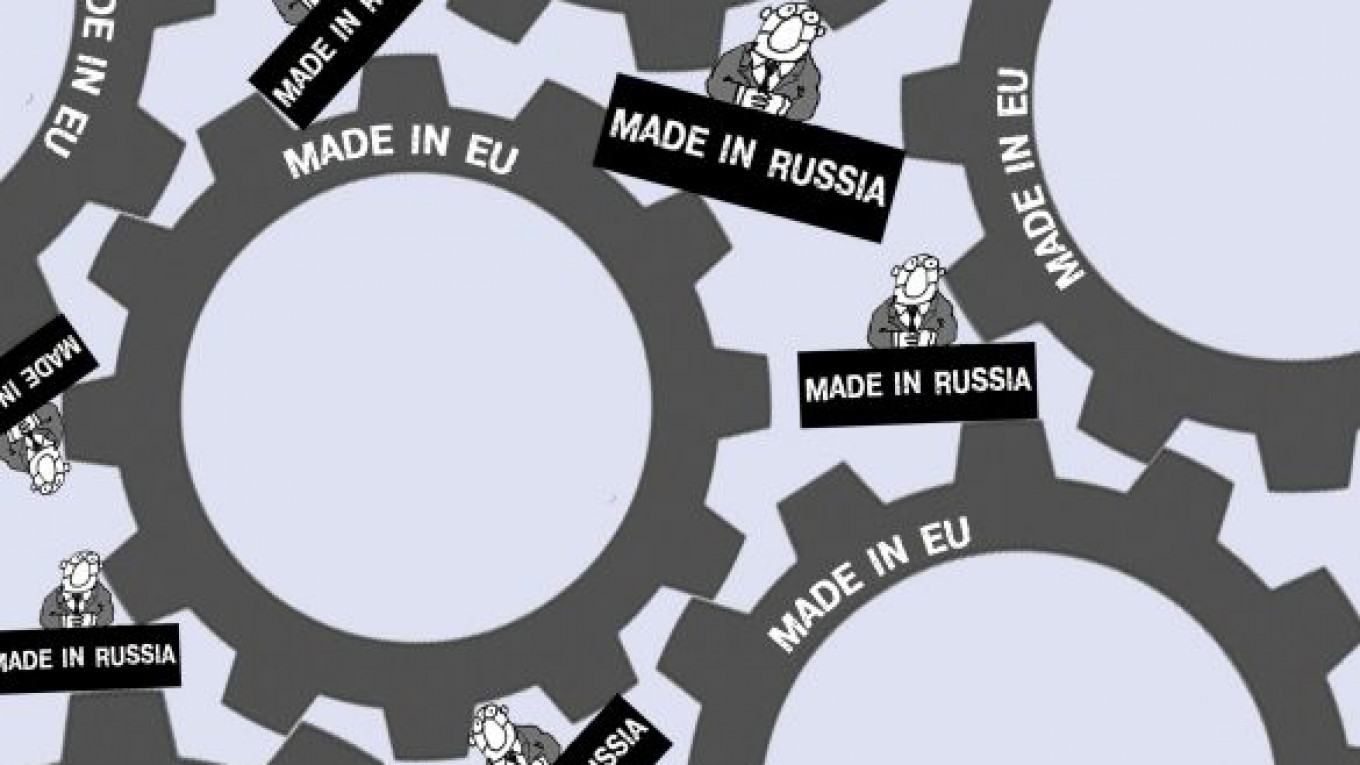Amid all of the talk of modernization, the Russian economy is gradually changing, but it is doing so despite government modernization policies and programs, not because of them.
In recent years, PSA Peugeot-Citroen, Mitsubishi Motors and Volkswagen have opened factories in the Kaluga region, Siemens opened a transformer plant near Voronezh, and Western investors have launched a range of businesses manufacturing construction materials and food products.
Russian businesses are also increasing their activity — for example, Magnitogorsk Iron & Steel Works has opened a new steel-plate rolling plant. Moreover, investment has increased in oil refining and chemical production, and a new cement plant owned by LSR Group should begin operations by the end of the year. This factory is the first cement plant to be built after the collapse of the Soviet Union.
All of these projects have been carried out without any assistance from the state. Despite all of the loud proclamations of the government’s commitment to supporting modernization, there are strong doubts about whether the authorities have any real intentions to modernize the country.
Unfortunately, industrial plants that are now under construction or being upgraded do not use Russian machinery. Metallurgical equipment is more likely to come from German firm SMS Siemag; Finnish company Konecranes provides the lifting machinery; brick kilns come from Burton of Germany and Ceratec of France; clinker mills from Krupp; and printing machines from Heidelberg. Everything is imported from abroad because Russian industry either doesn’t produce machinery, or it would be useless to even try. Even though in 2008 import duties were repealed for foreign industrial equipment that has no counterpart in Russia, it did little to help promote new business because the previous barriers remained in place.
The main obstacle has been the need to certify equipment and adapt it to Russian technical standards. In most cases, the official review of a project’s documentation — checking the industrial safety of technical devices, buildings and structures — takes months on end to complete and eats up a significant part of investors’ energy and resources. It is also necessary to translate large numbers of documents, working with suppliers to change specific assemblages and mechanisms to obtain Russian certification. Even during the economically difficult year of 2008-09, Russia imported $159.9 billion in industrial equipment. At 52.2 percent, this became not only the leading but the main category of Russian imports.
Of those imports, 62.2 percent, or $99.4 billion, came from countries of the European Union — primarily Germany. About 17 percent, or $27.2 billion, came from China. Of that total, 45 percent were produced by European companies that have operations in China, and 35 percent were produced by Chinese firms for export to Europe. This shows that more than 75 percent of Russia’s industrial equipment imports were de facto certified for standards of the European Union, and European standards are almost all more demanding than those in Russia — that is, when such standards even exist in Russia. The obvious question is: Why should that equipment have to jump through countless bureaucratic hoops — a process that is becoming increasingly difficult and expensive — to obtain Russian certification and approval?
The solution could be as simple as it would be effective: Cancel the onerous requirements for Russian certificates and approvals for equipment made in the European Union or according to EU standards and for construction work performed by EU-based companies.
This would in no way diminish the rights of Russian consumers because the end products — metal products, cement, bricks and consumer goods — would all comply with this country’s standards and technical regulations. Nor would it pose a threat to workers because safety standards would remain unchanged and nobody would be trying to bypass them. What’s more, this decision would greatly reduce the nonmanufacturing costs faced by companies trying to modernize, and it would be a step toward establishing uniform Russian and European standards. It is no wonder that an important impetus toward European integration was the so-called Cassis de Dijon decision of the European Court of Justice stating that any product manufactured in one country of the European Economic Community was suitable for sale in any other EEC country and did not require additional certification.
Russia should start by removing barriers to importing high-quality equipment from abroad and then gradually move closer to establishing uniform standards and cooperative relations with European businesses. At the same time, the country will be eliminating obstacles to modernization that are now being created for the sake of “order” and “security” — obstacles that only serve to further bloat a growing bureaucracy and line the pockets of corrupt officials.
Vladislav Inozemtsev is a professor of economics, director of the Moscow-based Center for Post-Industrial Studies and editor-in-chief of Svobodnaya Mysl. This comment appeared in Vedomosti.
A Message from The Moscow Times:
Dear readers,
We are facing unprecedented challenges. Russia's Prosecutor General's Office has designated The Moscow Times as an "undesirable" organization, criminalizing our work and putting our staff at risk of prosecution. This follows our earlier unjust labeling as a "foreign agent."
These actions are direct attempts to silence independent journalism in Russia. The authorities claim our work "discredits the decisions of the Russian leadership." We see things differently: we strive to provide accurate, unbiased reporting on Russia.
We, the journalists of The Moscow Times, refuse to be silenced. But to continue our work, we need your help.
Your support, no matter how small, makes a world of difference. If you can, please support us monthly starting from just $2. It's quick to set up, and every contribution makes a significant impact.
By supporting The Moscow Times, you're defending open, independent journalism in the face of repression. Thank you for standing with us.
Remind me later.








